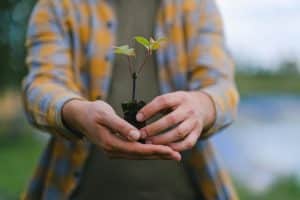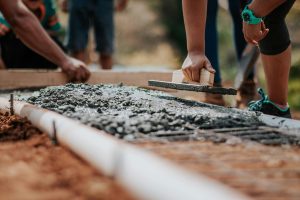Travel has a unique way of opening our hearts and minds to new perspectives. During the summer of 2024, I went on a mission trip to the country of Vanuatu. I experienced firsthand what it means to embrace equity and inclusion in a variety of situations. Through meaningful interactions, shared meals, and cultural exchanges, I learned the importance of listening, respecting differences, and building connections across barriers. One particular experience stands out as a vivid example of inclusivity in action: a scavenger hunt that tested our ability to understand and communicate with people from a culture vastly different from our own.
Scavenger Hunt
The scavenger hunt was designed to give us a glimpse into the lives of missionaries who work to integrate into the local community. The activity required us to engage with native people, learn about their traditions, and even pick up some of their language. One task on our list was to ask a native why pigs are important to their culture.
At first, the language barrier seemed insurmountable. My group spoke none of the native languages, and the locals spoke little to no English. Despite the challenge, we persevered, asking the question repeatedly, using gestures, and trying to interpret the responses we received. Through patience and collaboration, we finally pieced together an understanding of the answer. It was a powerful reminder that inclusivity often requires humility, persistence, and the willingness to step out of your comfort zone.
All Backgrounds Under One Roof
During our trip, we attended a local church where people from a variety of backgrounds gathered. The congregation included native islanders, Samons, Chinese, Austrians, Caucasians, and Muslims. Despite their differences, it was clear that everyone got along beautifully. The atmosphere was one of mutual respect and genuine kindness – a testament to how inclusive environments can thrive when diversity is embraced.
The church community’s hospitality was unmatched. When we visited a village church, we were honored with heartfelt gifts and treated to a meal prepared by the congregation. The food, served with a side of tea, had a taste and texture unlike anything I had ever experienced in the United States. It was a humbling experience to be welcomed so warmly by people who had so little, yet gave so much.
The Kindness of the Natives
One of the most heartwarming aspects of Vanuatu was the friendliness of its people. Walking through the island’s villages and towns, we were greeted with a warm “Hello” or “Good morning” from nearly everyone we passed. Their genuine kindness made us feel welcome and valued, even as temporary visitors to their homeland.
The simplicity of their lives was also striking. Many villages were built from tin, reflecting the high cost of living on the island. Despite their modest means, the natives radiated joy and generosity—a powerful reminder that wealth isn’t measured by material possessions but by the richness of one’s spirit.
Takeaways on Equity and Inclusion
My trip to Vanuatu was a profound lesson in equity and inclusivity. From navigating language barriers to embracing diverse cultural practices, I learned that inclusion requires intentionality, openness, and respect. Whether it was collaborating on a scavenger hunt, sharing meals with people from different backgrounds, or simply being greeted warmly by strangers, every interaction reinforced the importance of building bridges rather than walls.
Vanuatu’s spirit of community and kindness is something I’ll carry with me forever. It’s a reminder that, no matter where we come from, we all have the capacity to connect, learn, and grow when we approach one another with empathy and an open heart.

Maliah Spencer
Maliah is an Agricultural Business student at Southern Arkansas University. She is very involved with the campus community serving as a Resident Assistant, Peer Academic Coach, University Housing student worker, and Career Services student worker.









